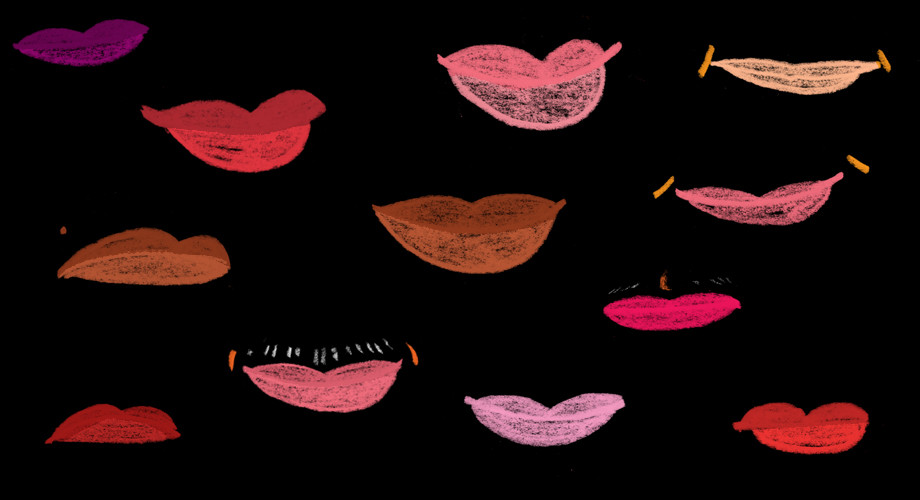#SBYB (Smile Because You’re Beautiful)

I’m not that into makeup.
Now, I’m not against makeup. That’s not it. Everyone should be able to wear whatever they want in a way that makes them happy without being questioned, and that goes for makeup too. I love seeing girls empower themselves by taking control of their own appearance, and I’m not gonna lie — I am beyond excited when I see selfies of my friends, all dolled up, totally owning their lewks of the day! Personally, though, I’ve never had the motivation to put on many beauty products at all. I’m a night owl who likes to compensate for her bad sleeping habits by sleeping in so I never seem to have enough time in the mornings — I just admire other girls’ epic makeup skillzzz from afar.
I choose not to wear makeup almost on the daily, and I rarely feel self-conscious about it. It makes me feel good, and that’s the point of makeup — the choice to wear or not wear it — and one of the primary concepts of equality. Male-identifying people don’t have to wear makeup to be affirmed by society as attractive, ergo, those who identify as female shouldn’t be pressured to put on any products if they don’t want to, either. It’s all a matter of choice. But while the idea of choice is reaching greater exposure, there are still a lot of unexpected hiccups when people try to act on it.
A couple years ago, my school’s peer support team promoted #SBYB (Smile Because You’re Beautiful), an Instagram hashtag movement that they had hoped would change the way students thought about unrealistic beauty standards. Their intent was great—they took photos of students holding empowering signs and reposted Instagram selfies of students with the hashtag—but the problem was their promotion of the movement. “Girls, go bare-faced and makeup-free for this week,” said a peer support member on the announcement. “And boys, don’t go commenting on how tired your girlfriends look with their dark under-eye circles or how red and uneven their faces seem. Let them know that they’re beautiful no matter what.”
Not only was this incredibly heteronormative, but it also reinforced the very standards it was claiming to fight against. The announcement implied that all girls, first and foremost, should be wearing makeup in the first place; on top of that, it also insinuated that not wearing makeup was the only way for a girl to show that she was “beautiful.” If those messages weren’t bad enough, the announcement also told boys that while the idea of girls forgoing makeup was revolutionary and laudable, electing to go bare-faced would also make them look worse—and the only way for boys to help out was to ignore the supposedly negative change in appearance of their female peers. All of the pressure fell on the female-identifying students and almost no responsibility was left to the males; while the idea to encourage girls to accept their “natural look” was positive, the execution of it was less than stellar.
I didn’t like knowing that some girls would be walking around school feeling insecure and unhappy because they’d decided to take the announcement to heart. Wanting to participate and feel involved in school events should be fun! It shouldn’t mean feeling inadequate and worrying even more about how you look—we girls struggle enough with that already as it is. It was unsettling and deeply uncomfortable for me to think that while I went to school every day makeup-free and could be potentially praised for inadvertently participating in #SBYB, a girl sitting right beside me in class could be considering whether or not other people were making fun of her or criticizing her for looking “tired” or even “ugly” just for neglecting to go through her usual makeup routine. This sort of double standard and backhanded promotion of rejecting makeup is not how we should fight narrow beauty standards, and it’s not how we successfully empower girls to look however they want without fear of judgement.
Too often I’ve heard girls whisper behind cupped hands about those who don’t wear makeup, or who decide that today’s a no-makeup day for them. I’ve seen too many boys remark that girls who don’t wear makeup are “ugly” and “gross”, but that girls who wear “too much” makeup are “slutty try-hards.” It’s time for these standards to be destroyed – but their end won’t be brought about by old-fashioned ideals and backhanded “empowering” sentiments disguised as body-positive announcements.
This year, the peer support team chose to advertise #SBYB differently. Instead of insisting that the only way to show body positivity and self-acceptance was to reject makeup entirely, the new announcement declared that beauty “is defined by_ you_. You want to wear a full face of makeup? Yes, go for it! Don’t feel like putting on a single swipe of mascara? Don’t feel pressured to! Beauty is whatever you make it to be, and it’s different for every person. This year, we’re letting you decide what’s beautiful, instead of defining it for you.” It was a fantastic change and a definite improvement from their first attempt. I could feel the difference that the new announcement made in the room—there was less apprehension, less fear. The inclusion of all ideas of beauty meant, by extension, the inclusion of everyone and their own definition of true beauty. That’s true acceptance.
It was just a small movement – it was not meant to move mountains or revolutionize mainstream media. But that simple little announcement – with the seemingly insignificant change in wording and the tiny fine print added to the message of #SBYB – made a world of difference to all the kids at my school. It really dismantled illusory beauty standards without excluding or alienating anyone; ultimately, that’s how it should be.
Smile because you’re beautiful, mes petits choux! Let’s demolish these B.S. beauty standards together, one hashtag at a time.



